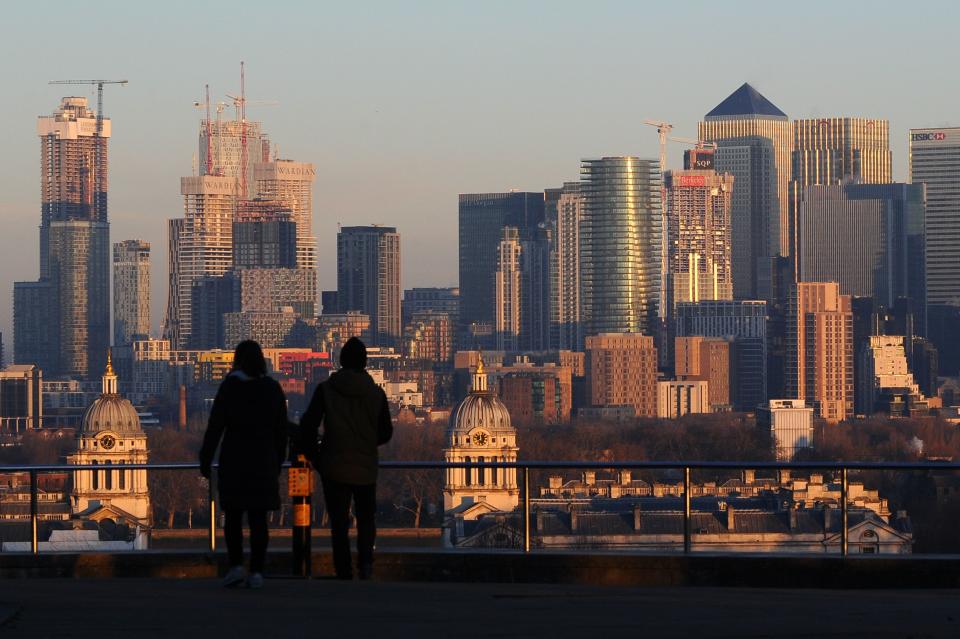'Deep frustration and anger' as business leaders tell MPs to compromise on Brexit

Business leaders have called on members of parliament (MPs) to put aside their differences and compromise on Brexit to protect the UK economy.
The Institute of Directors (IoD), the UK’s leading trade body for company directors and senior executives, urged MPs on Wednesday to listen to the warnings coming from businesses about the consequences of continued indecision over Brexit.
“Politicians who claim to prioritise the UK’s future economic success must take account of the views of business leaders, who understand better than anyone the impact of the changes that are coming to our relationship with our largest trading partner,” Edwin Morgan, interim director general of the IoD, said in a statement.
Morgan said there was “deep frustration and anger among companies” over the government’s handling of Brexit so far.
“Businesses were told that by now a Brexit transition period would have been secured and we would have moved on to discussing our future relationship with the EU,” he said.
“Conflicting views among MPs are understandable, and business does not have a unanimous view either, but now is the moment to accept that every course of action creates both risks and opportunities. When our political leaders convene in Westminster today, they must be prepared to compromise.”
Morgan’s comments came ahead of a series of indicative votes in parliament on various Brexit options, as politicians look to try and unite around some kind of deal.
“The big question is whether any single option can command a majority among lawmakers,” James Smith, a developed markets economist at ING (ING), said in a note to clients this week.
Oliver Harvey, a macro strategist at Deutsche Bank (DBK.DE), said the precedent did not bode well.
“In 2003, MPs voted against the House of Lords being completely unelected,” Harvey wrote in a note to clients this week. “To decide on the level of reform, indicative votes were held and MPs were asked to vote on a series of alternatives. MPs failed to reach consensus, however, with no clear majority for any of these options.”
Alongside the calls for compromise, the IoD published a survey of 1,400 of its members on Wednesday that found their preferred Brexit option would be retaining EU Single Market trading arrangements. Of those surveyed, 60% supported this option, which would preserve frictionless trade.
The IoD’s membership was divided over a Brexit extension. 50% backed just a short extension of a maximum of three months, against 40% that supported a delay of up to a year.
“Depending on what happens in Parliament this week, the Government must make clear exactly how they intend to use an extension period to secure a smooth Brexit, and set us on the path towards a productive partnership with the EU,” Morgan said.
Morgan’s calls for action are the latest in a series of interventions from business groups warning of the economic consequences of continued uncertainty around Brexit.
The Confederation of British Industry (CBI), the UK’s largest corporate lobbying group, called Brexit a “national emergency” on Monday as it published a survey showing optimism in the financial services sector falling at its fastest rate since the financial crisis.
Last week CBI chief Carolyn Fairbairn took the unusual step of partnering with Trades Union Congress (TUC) leader Francis O’Grady to write an open letter calling for UK prime minister Theresa May to come up with a “Plan B” on Brexit.
If politicians cannot unite around a Brexit deal soon, the UK still risks crashing out of the EU with no deal on 12 April.
“A clear route to progress must now be quickly identified and actioned. Food and Drink manufacturers need to know they have not jumped from the frying pan of 29 March into the fire of 12 April,” Ian Wright CBE, the CEO of the Food and Drink Federation, said in a statement on Monday.
Pantheon Macroeconomics warned in a note to clients this week that a no-deal Brexit would likely trigger a recession in the UK, but said the chances of no deal are just 15%.
————
Oscar Williams-Grut covers banking, fintech, and finance for Yahoo Finance UK. Follow him on Twitter at @OscarWGrut.
Read more:
Apple’s new Goldman Sachs credit card could be part of deeper push into finance
UBS: Pound could fall by 10% if there’s a hard Brexit
Goldman Sachs’ UK charity donated £19m last year
Meet Sir Jim Ratcliffe, Britain’s richest man who’s taking over Team Sky

 Yahoo Finance
Yahoo Finance 